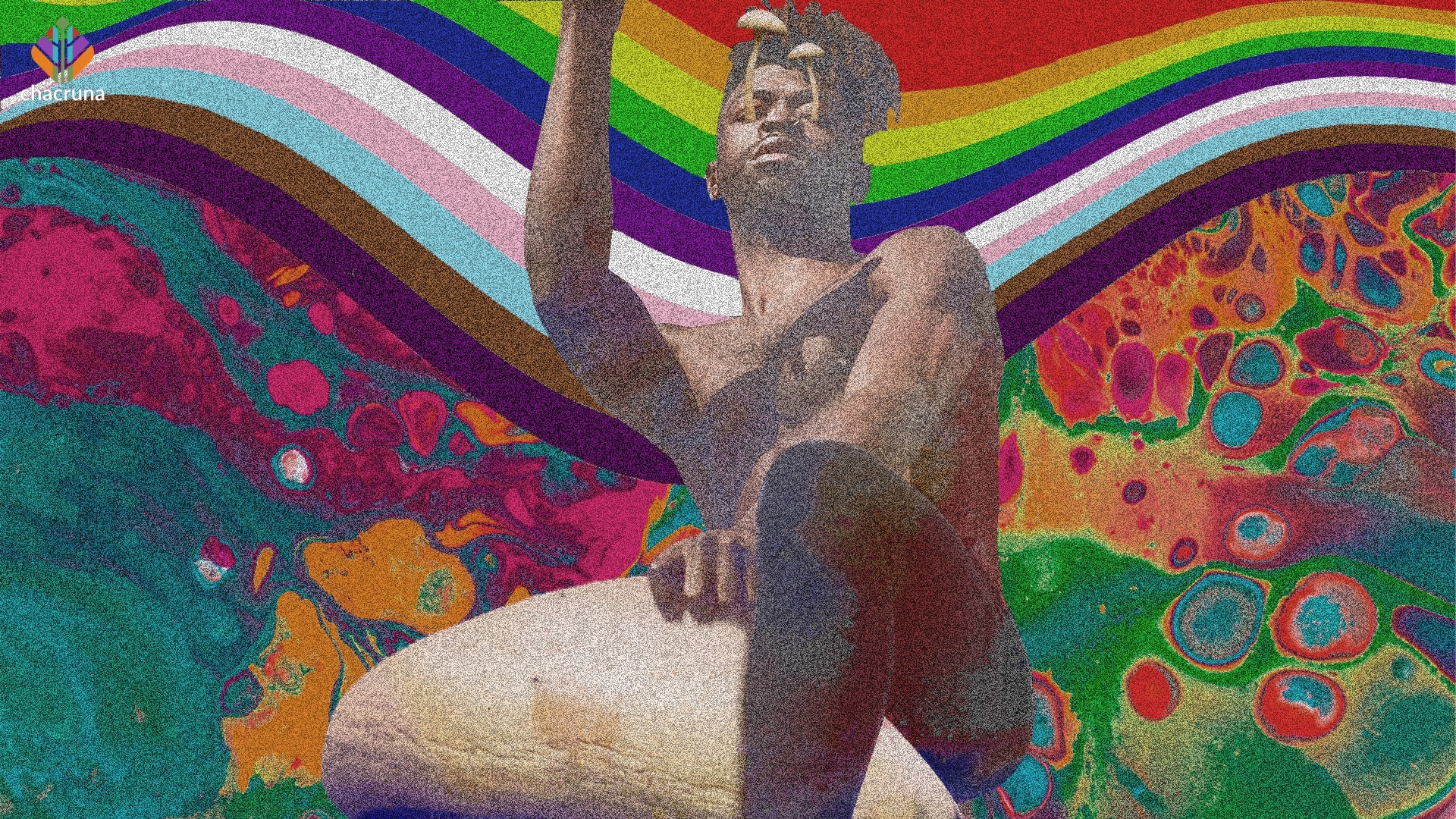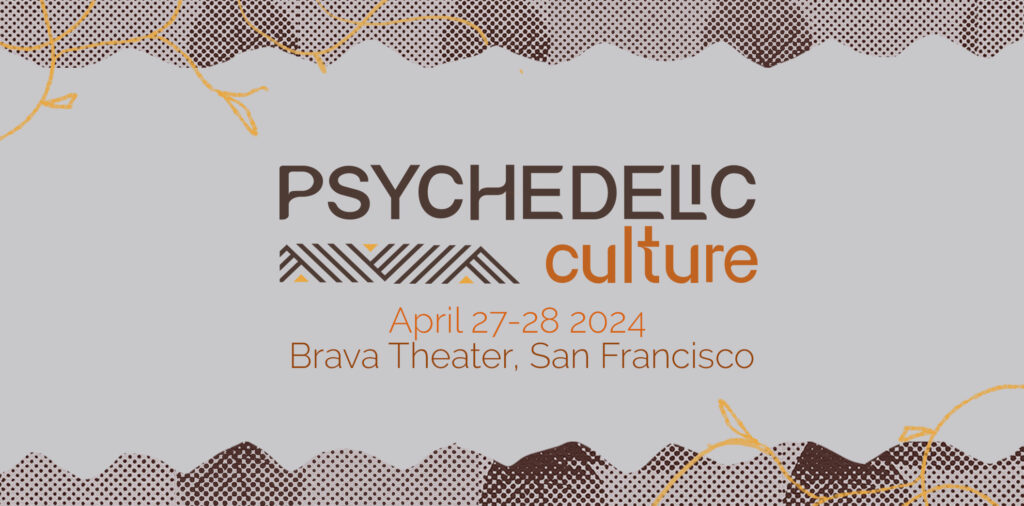Creating spaces that are inclusive and accepting of people across various continua is, in theory, a principle that the sex-positive community, as well as the psychedelic community, is centered upon. At first glance, it might seem like psychedelics have little to no overlap with kink/BDSM (bondage/discipline, dominance/submission, and sadism/masochism). However, upon deeper reflection, there is more in common, with a great deal of overlap. Furthermore, by communicating with one another, the psychedelic and kink communities can learn from each other, and this can more deeply benefit queer folx.
As a psychologist, a certified sexologist with years of academic and real-world experience, and a certified psychedelic researcher and therapist, I’m primarily interested in supporting people to become more fully themselves. Psychedelics, as well as kink/BDSM, offer the potential to do that.
Intentionally orchestrated psychedelic journeys and sensitively and consciously planned kink/BDSM scenes both hold incredible possibilities for deep and potentially profound exploration of the psyche, trauma healing, and embodiment.
Intentionally orchestrated psychedelic journeys and sensitively and consciously planned kink/BDSM scenes both hold incredible possibilities for deep and potentially profound exploration of the psyche, trauma healing, and embodiment. If conducted in a highly skillful and ethically rigorous manner, both can offer a richer connection with self and others. Neither of these scenarios are ones you want to approach with ignorance; doing so could be harmful or traumatic.
Approaching with ignorance includes doing so without first (or simultaneously) exploring your history of abuse, violence, interpersonal trauma, and relationship difficulties with a skilled professional. If this is not earnestly sought, there is a high potential of people’s individual and unexplored shadows taking center stage. This could yield further abuse that may occur unconsciously.
Along those lines, consent is imperative for safety; a solid container creates the framework for a great deal of healing. The psychedelic-assisted therapy community could learn from the ethically-practiced BDSM community because they have well-established, generally agreed-upon best practices, and these practices have been reflected on and expanded upon over time. The potential for abuse is high in the psychedelic-assisted therapy community through a breach of boundaries, enactments of former abuse, and damage done to the psyche. However, that’s not to say BDSM is immune to abuse—I’ve worked with individuals in both the psychedelic and kink worlds who have fallen victim to people who were abusing their power, either as a play partner or as a facilitator or shaman.
Because of the high need and desire for healing through both of these avenues, there is a vulnerability that can leave seekers more open to victimization. Furthermore, any individuals with sociopathic or psychopathic tendencies may consciously (without discussion) allow the shadow material to lead the scene. This is why it is required for all parties to have accountability for their motives, intentions, and actions. For the queer community, there is oftentimes abuse or dysfunctional power dynamics that occurred in the family of origin. This may have manifested as discrimination, gaslighting, or direct abuse physically, emotionally, sexually, financially, and spiritually. Access to a safe and sacred space is imperative.
To avoid this scenario, it is of the utmost importance to have intentions and to prepare mentally, emotionally, and spiritually. That means an explicitly agreed upon understanding of what will happen during a journey or a scene, and time built in for aftercare and integration.
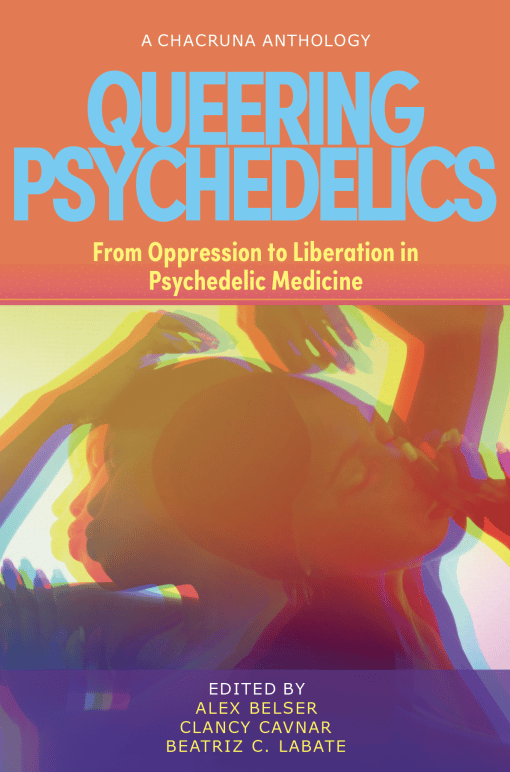
Explore Queering Psychedelics: From Oppression to Liberation in Psychedelic Medicine
IT’S ALL ABOUT SET AND SETTING
As alluded to above, set and setting are paramount. “Set” means “mind-set.” Your mind-set is the foundational psychological and spiritual understanding and knowing upon which your psychedelic or kink experience will be built. There is a preparation period for both scenes that is ideally done with a trained individual who has explored their own internal landscape, done shadow work, and has a vast working understanding of trauma, psychology, spirituality, and mystical states.
“Set” refers not only to the mental preparatory period, but also to your mind on the day of your planned psychedelic journey or kink/BDSM scene. If your mindset feels off, hesitant, or intense, consider postponing, rescheduling, or even canceling. Psychedelic journeys are not for everyone, and neither is BDSM play. It’s also true that, even if you’ve engaged with psychedelics or kink/BDSM in the past, today might not be the day to try again. There are many parallels that apply to both a planned psychedelic journey and a kink/BDSM scene. Each scene deserves the time and attention needed to prepare for such a deep dive endeavor. Journal about it and discuss it with your therapist and your partner(s), if appropriate. Regarding kink, if your partner(s) are not understanding, this is good information! You want to be with people who respect your boundaries, needs, and desires. It is imperative that you have partners that respect you in all ways, and that includes calling off a scene before it occurs and, yes, even midway.

Everything I’ve written above points to safety. Safe spaces are a huge part of healing for the LGBTQIA+ community, especially because historically, there has been abuse, marginalization, and discrimination. I have worked in numerous specific LGBTQIA+ safe spaces over the course of my career; safe spaces provide something for the individuals in the community they did not receive or have an opportunity to internalize growing up, especially throughout the process of coming out.
Safety is essential, not only among partners in terms of kink/BDSM play, but also among whoever is holding space for the psychedelic journey; that goes for both underground settings and clinical research facilities. The participants must be trained in how to hold space that is nonjudgmental, open-minded, and openhearted. They must have a firm, grounded presence as well as both a conceptual and operational understanding of trauma-informed work. Especially for those in the queer community, it is important that the scene and the setting are discussed so all participants can consciously and informedly give consent.
The LGBTQIA+ community has historically been beset with trauma and introjected with a sense of their own self-loathing and worthlessness, so it’s vital that whoever is holding space understands the possibility that unresolved trauma may bubble up to the surface.
The LGBTQIA+ community has historically been beset with trauma and introjected with a sense of their own self-loathing and worthlessness, so it’s vital that whoever is holding space understands the possibility that unresolved trauma may bubble up to the surface. Is there someone equipped to handle that? With proper training and preparation, all of those involved—from the journeyer to the facilitator(s)—will be able to handle what arises.
Find more information on the upcoming Psychedelic Culture Conference.
WHAT SAFETY CAN ACCOMPLISH
Often, the body is the recipient of projections from the psyche; when safety is prioritized in the spaces of psychedelia and BDSM, they can become arenas for an increased sense of embodiment, self-acceptance, and more positive body image. That’s beneficial for everyone, but even more so for members of marginalized communities such as queer folx.
Inherently, both trauma-informed therapy and kink/BDSM play have the goal of increasing embodiment. For example, if someone enters into a flogging scene, it is imperative for all participants to understand the great potential of embodied healing that may occur; however, it may occur while or after going through a dark night of the soul, or entering back into despair and darkness. There may be an initiation through a return to the traumatic time in order for the soma and psyche (body-mind) to process and heal. Having structure around these experiences is key for the healing potential. Psychedelics and kink/BDSM could offer tremendous healing for LGBTQIA+ folx because, not only is safety prioritized with the setting, but also because, inherently, both psychedelics and kink/BDSM scenes push the boundaries of what a person may experience in this lifetime. Both offer a transcendent edge: the psychedelic, via the self, the plant or substance, and the facilitator, together in the setting; the kink scene, via the self, with another and the setting they cocreate. The play itself and the connection between (or among) the partners is the medicine. Yet, both psychedelics and kink offer the possibility of an alternative state of consciousness or even mystical experience, and this should be deeply honored. It can be like opening a door to the depths of the cosmos. People can enter into a liminal space where truths are shared and experienced. They can go to the edge of the universe, beyond, and back again.
The play itself and the connection between (or among) the partners is the medicine. Yet, both psychedelics and kink offer the possibility of an alternative state of consciousness or even mystical experience, and this should be deeply honored.
How can an experience like that occur? Through trust. Trust in the medicine, trust in the process, and trust in the partners and others present. Also, trust in the self is important and hopefully is increased through the experiences. Kink/BDSM participants must have conversations with each other prior to the emotional, sexual, or sensual experience. They must explicitly make agreements and contracts. They have to establish safe words that are respected immediately and without question or pushback.
Psychedelic journeyers must have conversations with the person who will be holding space for them. What are they okay with and what are they not okay with? The more that is shared beforehand, the better. And, similarly, for both kink and psychedelic participants, what happens afterward is crucial.
PRIORITIZE AFTERCARE
Aftercare is a term common in BDSM vernacular. It is a way to express attention, kindness, and care, post-physical-intimacy, be it sex or a scene. This provides an opportunity for the folx involved to assimilate the experience just had. A similar concept exists in the psychedelic world: integration. An aftercare agreement needs to be established prior to the kink experience. Each individual must voice how they would like to be nurtured and held—physically, emotionally, and spiritually—after the scene. And each participant must ask how the other would like to be nurtured and held. The alternative state of consciousness can last beyond the established play time, which is why aftercare is so important. Aftercare can make an experience worthwhile and can provide an understanding of what some symbols in the play might mean. Talking with your partner may be helpful and fruitful after such an intense experience. Also, many benefit from working with a trauma-informed, sex-positive psychologist to process the experience and what arose from it even more deeply.
Creating space and honoring aftercare may be especially beneficial to queer folx because it has the potential to rewire the brain (thanks to neuroplasticity) and calm the nervous system through the embodied experience of caring and kind processing, post-intensity. No primary research currently exists to prove that, but the benefits can be extrapolated from existing research. Dr. Danielle Lindemann (2011) wrote, “Respondents indicated that clients not only came to their dungeons to atone for things they had done, but to work through wrongs which had been inflicted upon them—reliving traumatic experiences in order to gain control over them.” Oftentimes, folx with whom I work have had a lot of intense trauma, yet found little to no space to process and heal from it. The conscious practice of aftercare provides a potentially reparative experience.
For psychedelic participants, integration provides gravitas and allows a person to metabolize what occurred in the liminal space. Integration can happen in a multitude of ways but the most effective ones occur over the course of time and incorporate the body into the integration process.
The deep work of psychedelic medicine is done via the whole person, and that means the body too! In the programs I design, I use voicework (singing, chanting); drawing; making or listening to music; writing; yoga therapy; the labyrinth; energy work, such as reiki; spontaneous body movement; and somatics.
Ideally, an integration program is tailored to the individual’s needs. There is not a one-size-fits-all model; every person is different. Beginning and maintaining a practice can be a necessary part of integration. Using a mix of some of the modalities listed above can be key to making use of the experience.
WHAT THE QUEER COMMUNITY MODELS FOR US
Another thing the psychedelic community can learn from LGBTQIA+ folx is that there’s freedom in the rejection of traditional gender roles. For LGBTQIA+ folx, gender is a construct that has no bounds, which is helpful, in that people are allowed to just be people without adhering to a preset role. Especially, as the psychedelic community contains a variety of people and practices, this ability to just “be” creates space for people to be more themselves, which is where and when the “magic” happens.
In the kink/BDSM space, we see not only acceptance of the gender continuum, but also the willingness to play across gender lines and not necessarily with someone they are sexually attracted to. One of the reasons people do so is “because it can be free from the usual kinds of emotional expectations,” writes Victoria Baker (1993, p. 16):
As a dyke, when I play with another woman, the question frequently lurks that she could be “the one” for me. This is true even when I am happily in love. When I do SM with a gay man I don’t have to worry about possible emotional entanglements. We can experience pure sensuality and lust with physical abandon, leading to remarkably clean experiences. This in turn has taught me how to translate that pure experience to play with women.
While Baker states there would not be emotional entanglements if the play were with gay men, I would say it’s important to remember that such entanglements can be had between persons of any gender, orientation, and identification. While I’ve written extensively about how the psychedelic and kink/BDSM spaces mirror one another in certain ways, it’s also true they are different from each other.
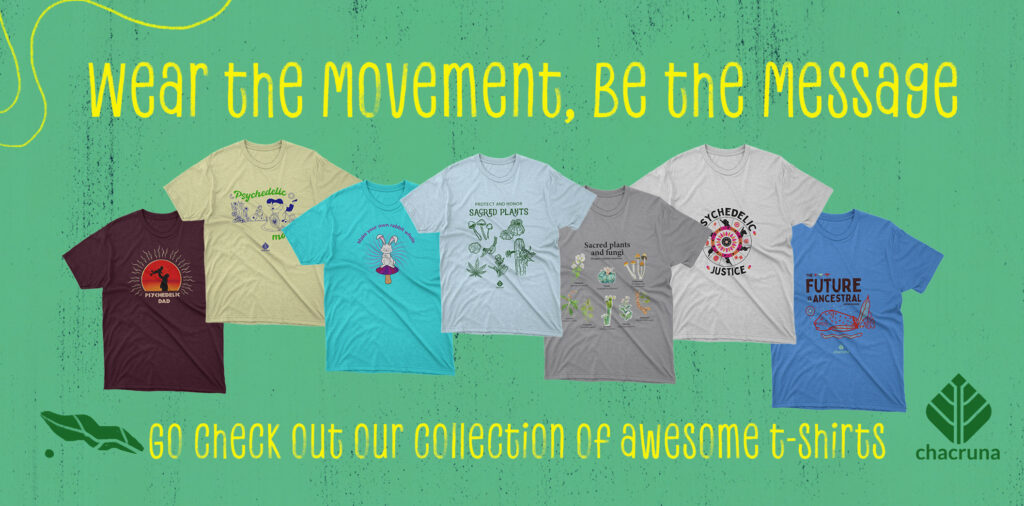
Shop our Collection of Psychedelic T-Shirts.
HOW PSYCHEDELICS AND KINK/BDSM DIVERGE
One crucial difference between the psychedelic and kink/BDSM communities is the use of drugs. It’s true that some people engage with psychedelics during kink/BDSM scenes, something that needs much care and preparation and an understanding of dosage, but, by and large, drug use is not encouraged in most kink/BDSM communities because the combination is potentially dangerous.
Similarly, erotic or sexual touch is expressly unethical in psychedelic-assisted psychotherapy, and also in most underground contexts. If erotic or sexual touch occurs, it’s considered abusive because of the power differential. Even if the journeyer initiated sexual contact, taking advantage of that position of authority is abusive, period.
Another difference is that a safe word can be used in BDSM and, even though there are alternative states of consciousness occurring (or the potential thereof), both parties can stop—and definitely should immediately—when the safe word is employed. When psychedelics are involved, that is not the situation: only one party, the facilitator, can “stop” because the psychedelics will not end even if the journeyer wants them to.
With both psychedelic experiences and in a kink scene, there is a deep-dive experiential journey with transformational potential. That transformation is only possible with integration or aftercare, without which the psychedelic journey or kink/BDSM experience will lack meaning and gravitas.
Nevertheless, with both kink/BDSM and psychedelics, sensitively planned, ethically rigorous scenes offer a deeper connection with self and others. There is preparation and an agreement among all parties regarding what they are about to experience, and consent is obtained to create a solid container. Doing so produces a sense of safety in the participants and thus promotes more embodiment and self-acceptance. With both psychedelic experiences and in a kink scene, there is a deep-dive experiential journey with transformational potential. That transformation is only possible with integration or aftercare, without which the psychedelic journey or kink/BDSM experience will lack meaning and gravitas. If sensitively planned, psychedelics and kink can create an increased sense of self and a deeper understanding of the mystical element of life that otherwise can be hard to access.
Note: “Dungeons of Perception: How the Psychedelic and Kink Community Can Learn from Each Other to the Benefit of the Queer Community” by Denise Renye was originally published in Queering Psychedelics: From Oppression to Liberation in Psychedelic Medicine (Synergetic Press 2022).
Art by Luana Lourenço.
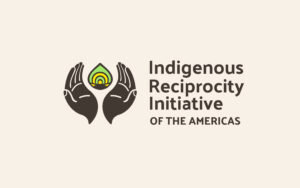
Discover the Indigenous Reciprocity Initiative of the Americas
Take a minute to browse our stock:
Did you enjoy reading this article?
Please support Chacruna's work by donating to us. We are an independent organization and we offer free education and advocacy for psychedelic plant medicines. We are a team of dedicated volunteers!
Can you help Chacruna advance cultural understanding around these substances?










